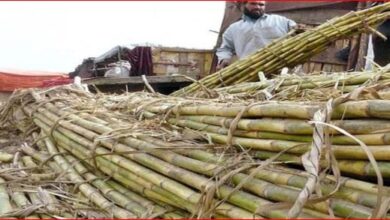Tarin is concerned about the disparity in pulse pricing.

ISLAMABAD: Shaukat Tarin, Federal Minister of Finance and Revenue, has voiced worry over the disparity in the retail and wholesale pricing of pulses across the country.
Tarin, presiding over a meeting of the National Price Monitoring Committee (NPMC), authorised the Ministry of NFS & R on Wednesday to investigate and take necessary measures against exploiters in order to keep imported pulse prices stable.
The Finance Division’s economic adviser addressed the NPMC on the weekly SPI, which fell 0.06 percent from the previous week’s level of 0.43 percent.
A total of 33 food products provided a 0.05 percent increase to the SPI, while 18 non-food items contributed to a 0.11 percent decrease. The NPMC has been notified that the SPI has fallen for the third time since December 31, 2021.
Seven goods’ prices fell, resulting in a 0.59 percent drop in the SPI.Chicken was one of the things that fell by 0.27 percent, while other goods fell by 0.35 percent.
While the prices of 24 items increased, contributing 0.53 percent to the SPI increase, the items included tomatoes (0.22 percent), garlic (0.01 percent), petrol (0.16 percent), and others (0.14 percent), noting that the prices of perishable items such as tomatoes increased due to the rain in the country.
The conference was kept up to speed on wheat flour pricing, with the country’s wheat flour prices remaining stable. The modest difference in wheat flour costs, on the other hand, was attributable to supply interruptions induced by rain and fog.
The committee addressed the country’s wheat stock status and was advised that sufficient stockpiles of wheat are now available in the country.
Tarin expressed his delight at the availability of sufficient wheat stocks and requested that the Ministry of National Food Security and Research (NFS&R) devise a strategy to best preserve the country’s strategic wheat reserves in order to face any difficult circumstances in the future.
The NPMC also examined the country’s sugar pricing and urged the Ministry of Industries and Production to speed up the process of developing strategic stocks of sugar in the country while maintaining price stability.
During the conference, it was revealed that the prices of moog pulse had remained stable, but the prices of gramme, mash, and masoor had risen owing to lower production of these pulses throughout the world, fluctuations in the currency rate, and increasing freight expenses.
During the meeting, the committee expressed worry over the higher cost of edible oil in the country, despite the worldwide market seeing a drop in edible oil prices.
The NMPC asked the Ministry of Industries and Production to develop a plan and investigate alternative possibilities for the import of edible oil in order to cut the country’s prices.
The NPMC was also informed about the availability of basic commodities at reduced prices at the country’s Sastaa and Sahulat Bazaars.
In his closing remarks, the finance minister emphasised the efforts being made to keep the prices of basic products under control, as well as the steps being taken to maintain the seamless supply of critical commodities throughout the country.
The meeting was attended by Adviser to the Prime Minister on Commerce and Investment Abdul Razak Dawood, secretaries of M/o Industries and Production and Ministry of National Food Security and Research, provincial chief secretaries, the Finance Division economic adviser, and a member of the Pakistan Bureau of Statistics (PBS).





